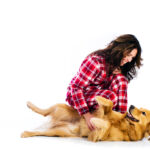Does Clavacillin Make Dogs Sleepy
Clavacillin and Dog Sleepiness: What You Need to Know
If you’re a dog owner, you may have heard of clavacillin as a common antibiotic prescribed for various bacterial infections. However, you may also wonder if this medication can make your furry friend feel sleepy or lethargic. In this article, we will explore the relationship between clavacillin and dog sleepiness, and provide some insights and tips that can help you ensure your dog’s health and well-being.
What Is Clavacillin?
Clavacillin is a brand name of amoxicillin-clavulanic acid, a combination of two antibiotics that work together to fight certain types of bacteria. It belongs to the penicillin family and is commonly used to treat skin, ear, urinary tract, respiratory, and dental infections in dogs. Clavacillin works by inhibiting the growth and reproduction of bacteria, while clavulanic acid enhances the effectiveness of amoxicillin by preventing it from being broken down by beta-lactamase enzymes produced by some bacteria.
Clavacillin is available in different forms such as tablets, capsules, chewable tablets, liquid suspension, and injectable solution. The dosage depends on the dog’s weight, age, medical history, and infection severity. Typically, clavacillin should be given twice a day with or without food for 7-14 days or as directed by a veterinarian. It is important to follow the prescription exactly as instructed and not to stop the medication prematurely even if your dog seems to recover before the course ends.
Does Clavacillin Make Dogs Sleepy?
The short answer is no. Clavacillin does not directly cause dog sleepiness or sedation as one of its side effects. According to the official prescribing information for clavamox (a similar product containing amoxicillin-clavulanate), only a small percentage of dogs may experience gastrointestinal signs such as vomiting, diarrhea, or loss of appetite. However, these symptoms are not related to drowsiness or lethargy.
So why do some dog owners think that clavacillin makes their dogs sleepy? There could be several reasons:
– The underlying infection itself can cause fatigue and weakness in dogs, especially if it spreads or becomes systemic. Therefore, if your dog is already feeling sick, he may naturally tend to sleep more than usual regardless of the medication he’s taking.
– Some dogs may have an allergic reaction to clavacillin or its components, which can manifest as itching, swelling, hives, breathing difficulties, or shock. These symptoms can also make a dog feel tired or sleepy due to the release of histamine and other inflammatory mediators.
– Other factors such as stress, anxiety, pain, boredom, or changes in routine or environment can affect a dog’s sleep patterns and energy levels. If you’re giving clavacillin to your dog during a stressful time (e.g., moving house, introducing a new pet), he may appear more lethargic than usual even if the medication is not directly responsible.
Therefore, if you notice that your dog seems more sleepy or inactive while taking clavacillin, it’s important to consider other possible causes and seek veterinary advice if necessary. Your vet may recommend changing the dosage or frequency of the medication, switching to another antibiotic if appropriate, or conducting further tests to rule out any underlying health issues.
How Can You Help Your Dog During Clavacillin Treatment?
Although clavacillin does not make dogs sleepy per se, it’s still important to ensure that your dog is comfortable and supported during his treatment. Here are some tips that can help:
– Offer plenty of fresh water: Antibiotics can sometimes cause dehydration and thirst in dogs. Make sure your dog has access to clean and cool water at all times, and encourage him to drink regularly.
– Provide a balanced diet: A healthy diet can boost your dog’s immune system and help him recover faster from infections. Choose high-quality dog food that contains protein, fiber, vitamins, and minerals, and avoid giving your dog table scraps or human food that may upset his stomach or cause nutrient imbalances.
– Monitor your dog’s behavior and symptoms: Keep track of how much your dog is eating, drinking, urinating, defecating, and sleeping while on clavacillin. If you notice any changes in these patterns or if your dog shows signs of discomfort or pain (e.g., whining, panting), contact your vet immediately.
– Give your dog some TLC: Dogs are social animals that thrive on human interaction and affection. Spend some quality time with your furry friend by playing, cuddling, grooming, or training him. This can not only strengthen your bond but also distract him from any physical discomfort or stress he may experience during the treatment.
Conclusion
Clavacillin is a useful antibiotic that can effectively treat bacterial infections in dogs without causing sleepiness or sedation as a common side effect. However, it’s important to be aware of other factors that can affect a dog’s energy levels and mood while undergoing treatment. By providing appropriate care and attention to your furry friend, you can ensure that he stays healthy and happy throughout his recovery journey.



